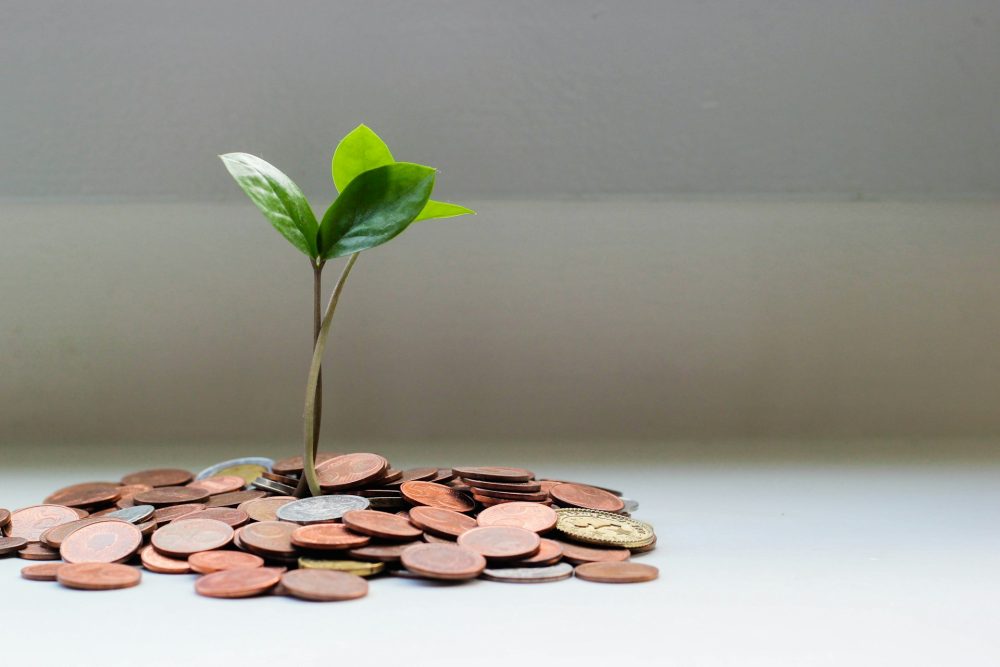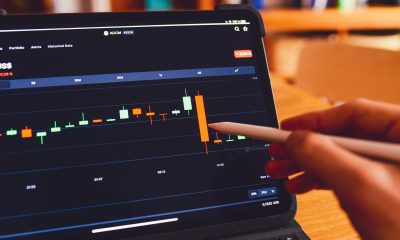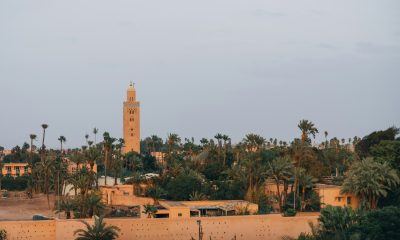Africa
Crowdfunding as a Catalyst for Inclusive and Sustainable Tourism in Morocco
Crowdfunding in Morocco, regulated since 2021, has proven impactful in solidarity, raising over 130 million dirhams after the Al-Haouz earthquake. Yet, its tourism potential remains untapped despite the sector’s rapid growth. Trust, communication, engagement, and usefulness are key drivers. Leveraging crowdfunding could boost inclusive, sustainable tourism and strengthen Morocco’s 2030 World Cup ambitions.

Crowdfunding, or collaborative financing, is firmly establishing itself in Morocco as a driving force for innovation, solidarity, and economic inclusion. Since the adoption of Law 15-18 in 2021, the country has established a clear and rigorous legal framework, overseen by Bank Al-Maghrib and the Moroccan Capital Market Authority.
This regulation has helped secure operations, build trust among stakeholders, and professionalize an ecosystem whose growth is now tangible. Between September 2023 and December 2024, more than 130 million dirhams were raised through Moroccan crowdfunding platforms, a sum almost exclusively linked to solidarity campaigns launched after the Al-Haouz earthquake. This citizen mobilization has revealed the immense capacity of collaborative financing to become a powerful tool for social inclusion and support for projects with a strong economic and social impact.
However, despite the undisputed success of crowdfunding in mobilizing solidarity, its potential remains largely underexploited in key sectors of the national economy, particularly in tourism. This sector, rich in innovative and sustainable opportunities, could greatly benefit from greater integration of crowdfunding to stimulate inclusive and responsible projects.
A major pillar of the Moroccan economy, the tourism sector is currently experiencing unprecedented growth and modernization. Between January and April 2025, it has already mobilized more than 1.5 billion dirhams to finance structuring projects, ranging from the promotion of cultural heritage to digital innovations such as gamification and connected services for travelers. According to the Moroccan Tourism Engineering Company (SMIT), this pace is expected to continue, reaching 8 billion dirhams in investments by the end of the year.
This package aims to diversify the tourism offering, enrich the visitor experience, and strengthen infrastructure. Morocco affirms its ambition to reach 26 million tourists by 2030, in a strategic preparation that includes the 2030 World Cup.
Yet, despite the vitality of this sector and these significant prospects, crowdfunding campaigns dedicated to tourism remain very limited in Morocco. This gap reveals a crucial opportunity to be seized. It underscores the need to identify and better understand the various elements that can influence Internet users’ intentions to engage in campaigns dedicated to tourism projects. This knowledge is essential to strengthen participation and ensure the success of these collaborative initiatives.
Trust, a key driver of participation
In a recent scientific study published in the prestigious journal “Tourism and Hospitality Research”, of which I am a co-author, we analyzed the intentions of Internet users to participate in crowdfunding campaigns dedicated to tourism projects.
Among these factors, trust is paramount. It significantly mitigates the negative impact of perceived risk, a major obstacle for many potential contributors. In a context where fears related to project non-completion or fraud are real, it is essential to build a transparent and secure relationship between project leaders, platforms, and their funders.
Beyond trust, the perceived usefulness of projects—that is, their real value and tangible contribution to the community—is proving to be a powerful lever for mobilization. Internet users are more involved when projects meet concrete needs, particularly social and environmental ones, in line with the requirements of sustainable and responsible tourism.
Communication and engagement: essential levers
The quality of project leaders’ communication plays a key role in the success of campaigns. Clear, transparent, and dynamic storytelling, supported by regular updates and interactive multimedia content, helps identify contributors to the project and strengthens their commitment.
Campaigns that successfully create authentic interaction with their funders build a true community, generating renewed support. Personal engagement also draws heavily from peer influence and social media. Community opinions and recommendations often play a decisive role in the decision to support a project, highlighting the weight of social influence.
Towards inclusive crowdfunding
The ease of use of crowdfunding platforms is another determining factor. Their ergonomics, transaction security, and adaptation to the specific expectations of Moroccan contributors indirectly but significantly influence trust and, consequently, funding intentions. It is therefore crucial that platforms offer intuitive, reassuring, and accessible interfaces to remove any technical barriers.
It is also interesting to note that the geographical location of the project has no significant effect on the intentions of contributors. On the other hand, there is a strong interest in the social and environmental impact of the initiatives, ethical and responsible criteria that correspond to the growing expectations of Moroccan citizens.
Despite its obvious potential, crowdfunding remains relatively unknown to the Moroccan public, requiring increased awareness-raising efforts. It is crucial to conduct educational and targeted information campaigns aimed at familiarizing citizens, entrepreneurs, and investors with this alternative financing method, its advantages, and its risks. This step is crucial for stimulating greater enthusiasm and gaining the trust of future contributors.
Furthermore, to maximize the effectiveness of campaigns, project leaders must adopt an inclusive approach. Inviting contributors to actively participate in the co-creation of projects strengthens their sense of belonging and loyalty. Communication must be clear, regular, and authentic, using dynamic content that arouses emotion and maintains interest over the long term.
Similarly, simplifying the user experience through user-friendly, secure platforms adapted to local practices helps remove technical barriers and build lasting trust. Highlighting the social and environmental impact of projects meets a growing expectation from funders, keen to support responsible initiatives.
Finally, innovation is a lever that should not be overlooked: attractive devices such as gamification, immersive technologies or exchanges between contributors and supporters can transform the financing experience into an act that is at once fun, collaborative and engaging.
Tourism Crowdfunding: An Opportunity to Seize
Tourism, a key pillar of the Moroccan economy, faces a major challenge: limited access to traditional financing for its innovative, sustainable, and inclusive projects. In this context, crowdfunding is emerging as a valuable opportunity to mobilize citizen resources, strengthen local solidarity, and promote responsible and shared tourism.
This momentum is driven by the gradual rise of platforms such as Kiwi Collecte and Akkan, among other significant players, as well as institutional support programs that facilitate the integration of this financing method. It is now crucial for public, private, and project-led stakeholders to prioritize the key factors identified—trust, communication, engagement, and utility—to maximize the impact of campaigns. Ultimately, crowdfunding in the Moroccan tourism sector is no longer a simple alternative; it is becoming a true catalyst for social, economic, and environmental innovation.
By relying on appropriate regulation, efficient platforms and a mobilized community, crowdfunding will help build a future where each contributor plays an active role in the development of more inclusive, creative and resilient tourism.
__
(Featured image by micheile henderson via Unsplash)
DISCLAIMER: This article was written by a third party contributor and does not reflect the opinion of Born2Invest, its management, staff or its associates. Please review our disclaimer for more information.
This article may include forward-looking statements. These forward-looking statements generally are identified by the words “believe,” “project,” “estimate,” “become,” “plan,” “will,” and similar expressions. These forward-looking statements involve known and unknown risks as well as uncertainties, including those discussed in the following cautionary statements and elsewhere in this article and on this site. Although the Company may believe that its expectations are based on reasonable assumptions, the actual results that the Company may achieve may differ materially from any forward-looking statements, which reflect the opinions of the management of the Company only as of the date hereof. Additionally, please make sure to read these important disclosures.
First published in LES ECO.ma. A third-party contributor translated and adapted the article from the original. In case of discrepancy, the original will prevail.
Although we made reasonable efforts to provide accurate translations, some parts may be incorrect. Born2Invest assumes no responsibility for errors, omissions or ambiguities in the translations provided on this website. Any person or entity relying on translated content does so at their own risk. Born2Invest is not responsible for losses caused by such reliance on the accuracy or reliability of translated information. If you wish to report an error or inaccuracy in the translation, we encourage you to contact us.

-

 Biotech2 weeks ago
Biotech2 weeks agoTwogee Biotech Advances Industrial Enzyme Solutions for Circular Production
-

 Crypto2 days ago
Crypto2 days agoUniswap and BlackRock Partner to Launch BUIDL in DeFi
-

 Cannabis1 week ago
Cannabis1 week agoScientifically Verified F1 Hybrids Set New Benchmark for Indoor Cannabis Yield and Consistency
-

 Fintech4 days ago
Fintech4 days agoImpacta VC Backs Quipu to Expand AI-Driven Credit Access in Latin America
























